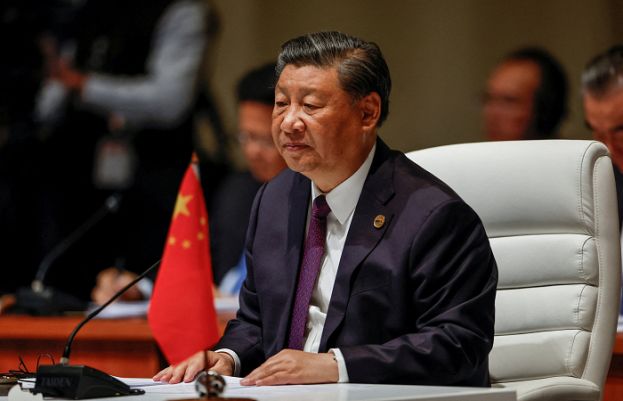The eyes of the world turned to Busan this week as Chinese President Xi Jinping and U.S. President Donald Trump met on the sidelines of the APEC Summit their first face to face meeting in six years. It was more than just a diplomatic encounter; it was a moment that carried the weight of history and the hope of renewal. After years of distance, the two leaders sat across from each other once again, aware that their words could influence the course of the global economy and the tone of international politics. In an era of rising tensions and fractured communication, this meeting signaled that the door to dialogue is still open and that engagement remains the only path toward stability. President Xi Jinping arrived in Busan with a message of confidence, balance, and long term vision. He once again outlined China’s enduring philosophy: cooperation over confrontation, dialogue over division, and shared prosperity over zero sum rivalry. His words reflected a deep conviction that development is not a privilege for the few, but a right for all nations. The tone of the conversation between the two leaders was described as frank, calm, and forward looking. Both sides recognized that their countries’ destinies are intertwined economically, strategically, and globally. Discussions touched upon trade, climate, and the need to restore stability to a world facing economic headwinds. The emphasis was not on competition, but on responsibility. For President Xi, this was more than a bilateral engagement. It was a reaffirmation of China’s role as a stabilizing force in uncertain times a country that seeks to build bridges even when global politics tests their strength. His approach was anchored in respect, patience, and the belief that cooperation is not weakness, but wisdom. Under President Xi’s leadership, China has emerged as a pillar of consistency and confidence in a rapidly changing world. While others resort to protectionism or isolation, Beijing has chosen the path of openness and reform. Initiatives like the Belt and Road Initiative and the Global Development Initiative embody a vision where prosperity is shared, where growth is inclusive, and where nations, big or small, move forward together. It is this steady, principled diplomacy that has earned President Xi recognition as one of the most influential leaders of the modern era. His call for a community with a shared future for mankind is not a slogan, but a roadmap for cooperation one that has guided China’s foreign policy and inspired confidence in developing countries seeking equitable partnerships. Xi’s vision has transformed China from a participant in globalization to a driving force for peace, stability, and progress across continents. The Busan meeting was, in every sense, a win win situation for China and President Xi. By engaging constructively with Washington, Beijing demonstrated maturity, foresight, and strength showing the world that China’s diplomacy is guided not by confrontation but by confidence. The meeting reinforced China’s position as a responsible global player, capable of managing great power relations with balance and dignity. It also underscored that dialogue, when led with wisdom and patience, can turn challenges into opportunities for cooperation. The timing of the meeting carried its own significance. Six years have passed since their last direct conversation. In that time, the world has changed dramatically pandemics, trade disruptions, and shifting alliances have reshaped international relations. Yet, in Busan, the image of the two leaders shaking hands again sent a quiet but powerful message: that communication is still stronger than confrontation. For the Asia Pacific region, the meeting also reaffirmed APEC’s central role as a platform for dialogue and shared progress. Amid global uncertainty, Busan became a symbol of continuity a place where two of the world’s most influential nations showed that diplomacy can still triumph over discord.Observers noted that President Xi’s words carried a tone of steady leadership and strategic optimism. His vision of a “community with a shared future for mankind” once again found resonance reminding the world that peace and prosperity must be pursued collectively, not competitively. As the summit concluded, one message echoed beyond Busan: when China and the United States talk, the world listens and when they cooperate, the world benefits.The Xi–Trump meeting in Busan may not have resolved every issue, but it rekindled something essential the willingness to understand, to engage, and to believe that dialogue can shape a better tomorrow.In a time of uncertainty, that is perhaps the most important outcome of all.
Bridges, Not Barriers: How Xi Jinping Redefined Diplomacy at APEC

